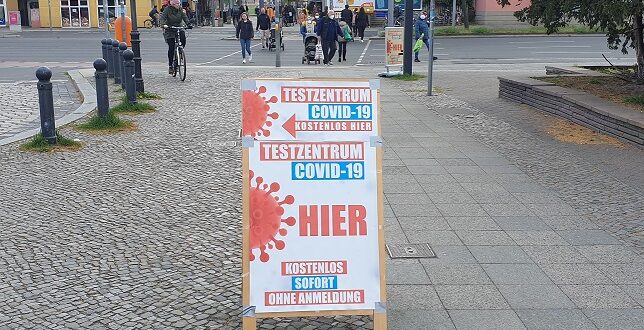New month, new laws! New laws and administrative regulations enter into effect in October. Among these are those related to the coronavirus pandemic as well as those affecting motorists, debtors, taxpayers and doctor’s prescriptions.
——-
Unvaccinated persons to pay for tests
In places where the 3G rule applies, only persons who have been vaccinated or have recovered from an infection or have been tested negative can be admitted.
As from 11 October, unvaccinated persons with some exceptions have to pay for the rapid test themselves. It will no longer be free for them.
Unvaccinated persons who will continue to enjoy free rapid tests are those who cannot be vaccinated for medical reasons or who have not received vaccination recommendation, including pregnant women, children and adolescents under 18 years of age.
The 3G rule applies in restaurants, hospitals, nursing homes, indoor catering, indoor events, gyms, sports halls, swimming pools, group accommodations and hairdressers.
——–
Unvaccinated people face loss of pay
Anyone who is not vaccinated and has to go into an ordered quarantine as a possible contact person to an infected person will no longer be compensated for this by their employer from October.
The new regulation will come into force on 11 October in North Rhine-Westphalia and Lower Saxony; it will apply nationwide from 1 November at the latest.
What remains unaffected, however, is that those who are infected with the coronavirus – regardless of vaccination status – and therefore have to go into isolation will continue to be paid.
This regulation also has no influence on the continued payment of wages in case of illness, regardless of the vaccination status of the affected.
——-
Agency recommends flu vaccination
The vaccination campaign against the new coronavirus is not the only one underway.
The Standing Committee on Vaccination (Ständige Impfkommission or STIKO) considers October to be the best time to be vaccinated against the flu viruses.
The agency recommends vaccination for people aged 60 and above. Pregnant women and people with chronic illnesses should also be vaccinated, according to the experts. The same applies to medical staff or employees in facilities frequented by many people.
——–
Electronic sickness notifications
The yellow paper (Arbeitsunfähigkeitsbescheinigung), which doctors usually issue to declare employees unfit for work, is to be abolished.
From 1 October, anyone who is ill and therefore unable to work will no longer report this to their insurer themselves. Instead, the attending doctor will digitally transmit an electronic certificate of incapacity for work (elektronische Arbeitsunfähigkeitsbescheinigung, eAU) to the patient’s insurer.
From July 2022, employers will also be included in the digital transmission process of certificates of incapacity for work.
——–
Electronic drug prescriptions
After a test phase in Berlin and Brandenburg, doctors nationwide will be able to voluntarily issue electronic drug prescriptions from 1 October.
Patients will then be able to manage the e-prescriptions via smartphone, for example. A paper printout will also remain possible.
From January 2022, the e-prescription for prescription drugs will be mandatory.
——–
New regulation to protect debtors
The debt collection law (Inkassorecht) is being reformed and parts of the new law will come into force on 1 October. The federal government seeks to better protect consumers from excessive debt collection fees.
Those who have small debts should no longer be faced with a huge mountain of debt quite so quickly in future. For smaller debts, the collection fees (Inkassogebühren) have been lowered and capped by law.
Accordingly, debts of up to 500 euros will only be subject to collection fees of up to 30 euros instead of the previous 60 euros. For small debts of up to 50 euros, only a maximum reminder fee of 18 euros may be charged (previously: 45 euros).
All in all, collection fees are to be reduced by almost 20 percent.
The coronavirus pandemic is also partly responsible for the changes in the law as, among other reasons, short-time work has caused many consumers to get into payment difficulties through no fault of their own.
——–
Deadline for submission of tax return
Due to the coronavirus pandemic, the tax return for 2020 can be submitted latest on 31 October, three months later than usual – at least if you do not use the services of a tax consultant. Those who have their tax return done by a tax advisor still have until 31 May 2022 to do so.
——–
From summertime to wintertime
The days are getting shorter again! At the end of the month, namely in the night from Saturday, 30 October to Sunday, 31 October, the clocks will be changed. At 3 am, the hands will be turned back by one hour – to 2 am.
This means that the clocks will now be ticking in wintertime again.
The good news is that everyone will be able to sleep an hour longer that night. The bad news is that it will henceforth get dark earlier in the evening.
——–
Motorists to change their tyres – winter is coming!
Oktober bis Ostern – von O bis O (October to Easter – from O to O): Every motorist should know this saying. Because winter tyres should be used during this period. It is therefore advisable to make an appointment with the garage as early as possible.
Femi Awoniyi/The African Courier
READ MORE New laws and regulations in Germany from September 2021
 THE AFRICAN COURIER. Reporting Africa and its Diaspora! The African Courier is an international magazine published in Germany to report on Africa and the Diaspora African experience. The first issue of the bimonthly magazine appeared on the newsstands on 15 February 1998. The African Courier is a communication forum for European-African political, economic and cultural exchanges, and a voice for Africa in Europe.
THE AFRICAN COURIER. Reporting Africa and its Diaspora! The African Courier is an international magazine published in Germany to report on Africa and the Diaspora African experience. The first issue of the bimonthly magazine appeared on the newsstands on 15 February 1998. The African Courier is a communication forum for European-African political, economic and cultural exchanges, and a voice for Africa in Europe.




































